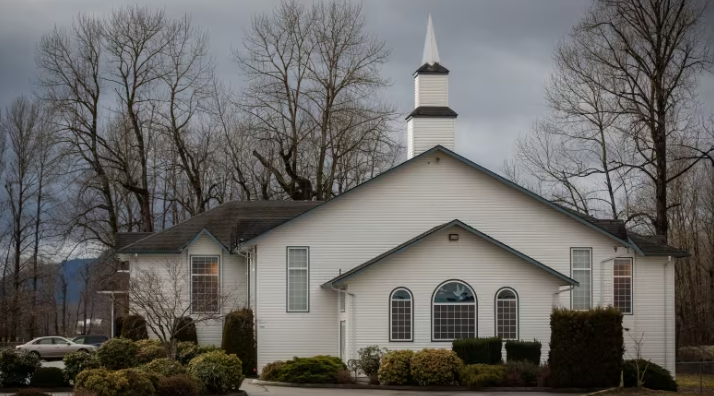Canada’s top court refuses appeal from B.C. churches protesting COVID-19 restrictions

Decision marks end of legal road for faith leaders 2½ years after they first challenged limits on gatherings
Canada’s highest court will not hear an appeal that challenged limits on religious gatherings during the COVID-19 pandemic, marking a significant endorsement for British Columbia’s provincial health officer and the end of the legal road for the faith leaders involved.
The Supreme Court of Canada refused to hear the case from churches in B.C.’s Fraser Valley that argued public health rules violated their Charter rights by banning indoor religious services during the height of the pandemic.
“We are disappointed that the Supreme Court of Canada has declined our application for leave to appeal in this matter,” read a statement from Marty Moore with the Justice Centre for Constitutional Freedoms.
Provincial Health Officer Dr. Bonnie Henry made the orders during the province’s second wave of infections in late 2020.
The religious group — which includes pastors and other leaders from Chilliwack, Abbotsford and Langley — had applied for the chance to appeal with the Supreme Court of Canada after losing their case with B.C.’s courts.
As is custom, the higher court did not give reasons for its decision to deny leave to appeal.
Henry said at an unrelated briefing on Thursday that she was “very pleased” with the Supreme Court of Canada’s decision.
“I’m just really thankful that the courts are taking this on and that we’re still learning from what we’ve been through for the last 3 1/2 years,” she said.
B.C.’s attorney general’s office said in a statement, “We thank the Supreme Court for its decision in this matter.”
B.C. court unanimous in support of order
In a unanimous decision in December, the B.C. Court of Appeal said Henry’s orders were justified under two critical legal tests — even if they did infringe on Canadians’ constitutional freedoms.
That ruling came after the religious groups appealed a B.C. Supreme Court decision that also sided with the government, in relation to a petition seeking a declaration that Henry’s orders had infringed on their religious freedoms.
The initial petition was launched in 2021 by a group of Fraser Valley pastors and Alan Beaudoin, a man described by the lower court as an “activist” who involves himself “in advocacy for both what he sees as his own rights and those of others.”

The B.C. Supreme Court ruling found the first iterations of Henry’s ordered did violate Beaudoin’s right to freedom of expression and that “the infringement of those rights by those orders cannot be demonstrably justified in a free and democratic society.”
But Chief Justice Christopher Hinkson said the pastors weren’t entitled to mount a Charter challenge to the orders, because the process under which they asked Henry for a reconsideration allowed only for a judicial review of the reconsideration itself — not the order underpinning it.
Regardless, Hinkson said Henry’s orders would have been justified under a section of the Charter that allows governments to put limits on rights and freedoms in certain situations.
In its ruling afterward, the B.C. Appeal Court said Hinkson was right to apply a legal test that says administrative decisions like Henry’s must reflect “a proportionate balancing of the Charter protection” with the statutory mandate of her office.
The appeal court judges said Henry “made time-limited and setting-specific orders restricting activities she considered to be most likely to foster widespread transmission of the virus.”
“She was uniquely qualified to make these decisions,” the appeal court decision stated.
“The exercise of her judgment must be afforded deference.”
Related News
Trade war, slumping border traffic: What does that mean for the Gordie Howe bridge?
Amid U.S. President Donald Trump’s tariffs which have triggered a trade war with Canada, cross-border trips haveRead more
Trump administration threatens Harvard’s foreign enrolment, tax-exempt status
U.S. Homeland Security Secretary Kristi Noem speaks during an event on April 9, in Washington,Read more
